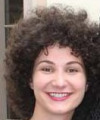 Leadership/Resources/Economics/Perseverance
Leadership/Resources/Economics/Perseverance
Belma Cemalovic took a hard look at her country and asked herself a question: Is this where I want to live out my life? She blames the war in Bosnia and Herzegovina, starting in 1992, on the irresponsibility of “its so-called leaders.” Good people, now neglected, risked or lost their lives to give their children a place to call home—for which she is grateful—yet conflict still looms among three coexisting ethnic groups.
“Conflict often happens in order for better solutions to occur,” Belma says, adding that leaders lacking diplomacy and vision can quickly turn conflict into disaster. Without long-term planning, young people can’t anticipate a future. She received a strong education, thanks to low tuition fees, but job opportunities are severely limited, and many ambitious young people find employment in other countries. Bosnia and Herzegovina ranks as having the 5th highest rate of “brain drain” in the world. Belma and her mother left for Norway during the war. Should she join the ranks of those seeking a better life elsewhere? Could she leave her family and friends?
It seems clear that Belma’s background would enhance her job prospects abroad. She was an active member of AIESEC* and became vice president of the local committee in Sarajevo responsible for corporate relations and incoming exchanges. Some might think that “inheriting” a position with a €5000 debt attached (from ex-members who failed to complete their jobs) would not be a promising student venture. Additionally, a new team member “bailed,” leaving Belma with the added responsibility of project planning. On top of that, pressure mounted from the AIESEC Bosnia and Herzegovina president and vice president to get the job done, because AIESEC forms partnerships with private companies, NGOs, and foundations. Reputations must be upheld. The challenge was formidable, but Belma took it on.
“We worked hard as a team of five throughout the whole year,” Belma says. They created AIESEC T-shirts and sold them, organized workshops, organized student gatherings and parties, and many other events, but they managed to pay the debt. She learned time-management and crisis-management skills. Belma understood the real meaning of team spirit as they worked together toward a common goal. “AIESEC teaches a person to be open-minded, to accept challenges, and to embrace failures because that is how you build yourself and develop your potential. Who never failed, never tried,” Belma says. At the end of the year, the AIESEC Bosnia and Herzegovina president named her Best Executive Board Member of 2010/2011. Belma sees AIESEC as one of the turning points in her life. She also made the dean’s list from the faculty of the economic department that year.
Belma then joined those leaving for greener pastures. She went to school for a year in Dublin where her successes, knowledge, and skills were appreciated. There seemed to be more opportunity there, and returning to her homeland left her depressed. A visa problem eventually settled the question, but instead of feeling “stuck” in Bosnia and Herzegovina, she felt a burden lift. She realized the experience of trying to change her life, moving away by herself, working in a foreign country, and struggling on her own had empowered her.
“After that moment, things starting to change,” Belma says. She rebuilt her life in Sarajevo, but she knew she still wanted to meet young leaders of the world. She spent a whole year traveling—summer school in Greece, conferences in Morocco and Skopje—and returned with an appreciation of her homeland. “I love my country and I trust the people,” she says. She now feels proud to be a citizen of Bosnia and Herzegovina, and, “After HSI,” she says, “I feel it in my heart that I can make great changes happen if I put my heart and soul into it, and that is exactly what I plan on doing.”
*(a French acronym for International Association of Students in Economic and Commercial Sciences)
